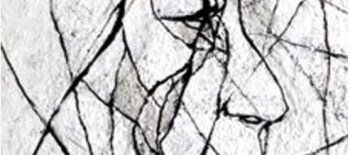In Olga Tokarczuk’s books, objective and imaginary realities intertwine and are equally true. Yet the fictions she creates do not come out of the blue, because they must be felt and found within herself. The Swedish Academy of Sciences honored her for ‘a narrative imagination that with encyclopedic passion represents the crossing of boundaries as a form of life.’
She began writing as an adolescent. Nevertheless, before fully devoting herself to a literary career, she held multiple jobs – even working as a maid in a London hotel. When accepting the Booker Award, she wore earrings that she had bought with wages earned in England 31 years earlier. ‘When I heard the jury’s verdict and did not really know what to say, these earrings came to mind. Their story somehow completed my story as a writer. And we all like such completed stories, because they give us a sense of meaning and fulfillment.’
The Booker Award did not complete Tokarczuk’s story as a writer, however. The Nobel Prize was in the air. News that she had won the award caught her on a German highway, in the midst of a tour to promote the German-language edition of The Books of Jacob. Completely surprised, she said she knew her writing was good but did not realise it was of Nobel quality.
She was born in 1962 in Sulechów. Her parents worked as teachers – her mother taught Polish language and literature, while her father worked in a library. She seemed destined to be a writer. However, she did not choose to study Polish literature, graduating instead with a degree in psychology from Warsaw University. As she says: ‘I was fascinated by everything that was peripheral, eccentric and abnormal, any disorders, diseases, anything that challenged the so-called norm.’ Moved by a desire to rescue people from the chaos of delusions, she worked in a psychiatric hospital and a mental health clinic. This experience, combined with the knowledge she gained during her studies, taught her to listen to people and better understand the human psyche in all its complexity. Thanks to this, her fictional characters are authentic and internally convincing.
She is against classifying authors by literary genre, a practice that she believes limits creativity and strips it of personal eccentricities. In her literary oeuvre, one can find parables, historical and crime novels, mythographic prose, essays, short stories, hybrid texts and even a psychological study of travel. Her work is full of contexts and references – to history, religion, mythology and nature. At heart, however, it is a deep spiritual reflection on the condition of modern man. She claims to write in order to disturb people a little – to make them question things that seemed obvious to them before. She considers the Polish language as a helpful instrument in her writing. According to Tokarczuk, it is one of the meatiest and most expressive languages for difficult subjects, friendly to those who have vision and know what they want to write.
Some of her books have been adapted for the stage and screen. The novel Drive Your Plow Over the Bones of the Dead was the basis for Agnieszka Holland’s 2017 film ‘Spoor’, with a screenplay written by Tokarczuk herself. The novel was included in The Guardian’s 100 best books of the 21st century list, and was described by the newspaper as ‘an astonishing amalgam of murder mystery, dark feminist comedy…and a primer on the politics of vegetarianism.’
Tokarczuk is a vegetarian, ecologist, feminist and social activist. She lives in Wrocław, which allowed any passenger on public transport carrying one of her books to travel for free after she received the Nobel Prize.
She rarely speaks about her private life, preferring her books to speak for her. They have been translated into 37 languages by 94 translators.



